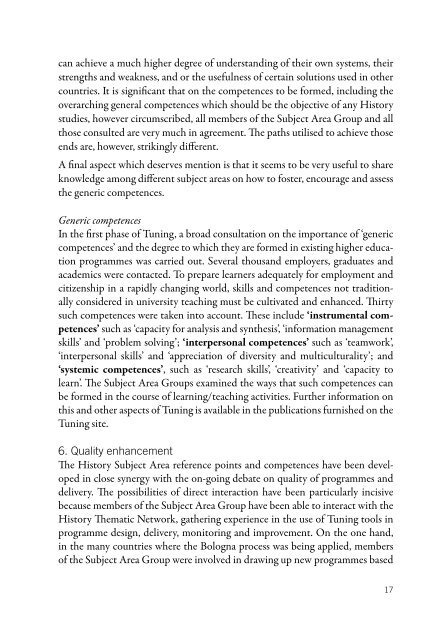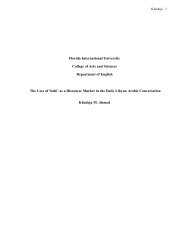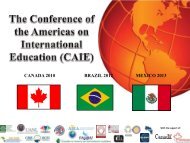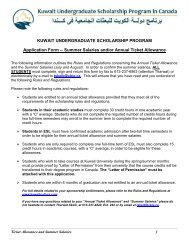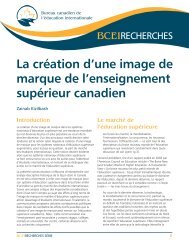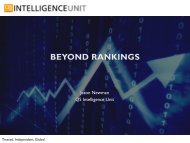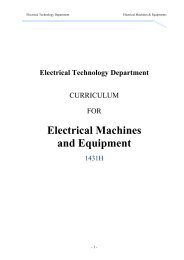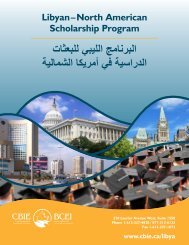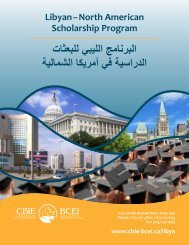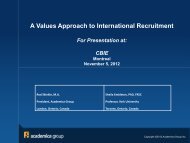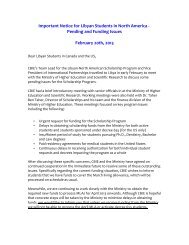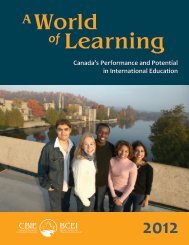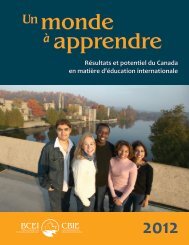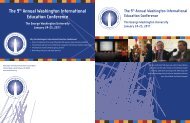Creating a New Historical Perspective: EU and the Wider World ...
Creating a New Historical Perspective: EU and the Wider World ...
Creating a New Historical Perspective: EU and the Wider World ...
Create successful ePaper yourself
Turn your PDF publications into a flip-book with our unique Google optimized e-Paper software.
can achieve a much higher degree of underst<strong>and</strong>ing of <strong>the</strong>ir own systems, <strong>the</strong>ir<br />
strengths <strong>and</strong> weakness, <strong>and</strong> or <strong>the</strong> usefulness of certain solutions used in o<strong>the</strong>r<br />
countries. It is significant that on <strong>the</strong> competences to be formed, including <strong>the</strong><br />
overarching general competences which should be <strong>the</strong> objective of any History<br />
studies, however circumscribed, all members of <strong>the</strong> Subject Area Group <strong>and</strong> all<br />
those consulted are very much in agreement. The paths utilised to achieve those<br />
ends are, however, strikingly different.<br />
A final aspect which deserves mention is that it seems to be very useful to share<br />
knowledge among different subject areas on how to foster, encourage <strong>and</strong> assess<br />
<strong>the</strong> generic competences.<br />
Generic competences<br />
In <strong>the</strong> first phase of Tuning, a broad consultation on <strong>the</strong> importance of ‘generic<br />
competences’ <strong>and</strong> <strong>the</strong> degree to which <strong>the</strong>y are formed in existing higher education<br />
programmes was carried out. Several thous<strong>and</strong> employers, graduates <strong>and</strong><br />
academics were contacted. To prepare learners adequately for employment <strong>and</strong><br />
citizenship in a rapidly changing world, skills <strong>and</strong> competences not traditionally<br />
considered in university teaching must be cultivated <strong>and</strong> enhanced. Thirty<br />
such competences were taken into account. These include ‘instrumental competences’<br />
such as ‘capacity for analysis <strong>and</strong> syn<strong>the</strong>sis’, ‘information management<br />
skills’ <strong>and</strong> ‘problem solving’; ‘interpersonal competences’ such as ‘teamwork’,<br />
‘interpersonal skills’ <strong>and</strong> ‘appreciation of diversity <strong>and</strong> multiculturality’; <strong>and</strong><br />
‘systemic competences’, such as ‘research skills’, ‘creativity’ <strong>and</strong> ‘capacity to<br />
learn’. The Subject Area Groups examined <strong>the</strong> ways that such competences can<br />
be formed in <strong>the</strong> course of learning/teaching activities. Fur<strong>the</strong>r information on<br />
this <strong>and</strong> o<strong>the</strong>r aspects of Tuning is available in <strong>the</strong> publications furnished on <strong>the</strong><br />
Tuning site.<br />
6. Quality enhancement<br />
The History Subject Area reference points <strong>and</strong> competences have been developed<br />
in close synergy with <strong>the</strong> on-going debate on quality of programmes <strong>and</strong><br />
delivery. The possibilities of direct interaction have been particularly incisive<br />
because members of <strong>the</strong> Subject Area Group have been able to interact with <strong>the</strong><br />
History Thematic Network, ga<strong>the</strong>ring experience in <strong>the</strong> use of Tuning tools in<br />
programme design, delivery, monitoring <strong>and</strong> improvement. On <strong>the</strong> one h<strong>and</strong>,<br />
in <strong>the</strong> many countries where <strong>the</strong> Bologna process was being applied, members<br />
of <strong>the</strong> Subject Area Group were involved in drawing up new programmes based<br />
17


